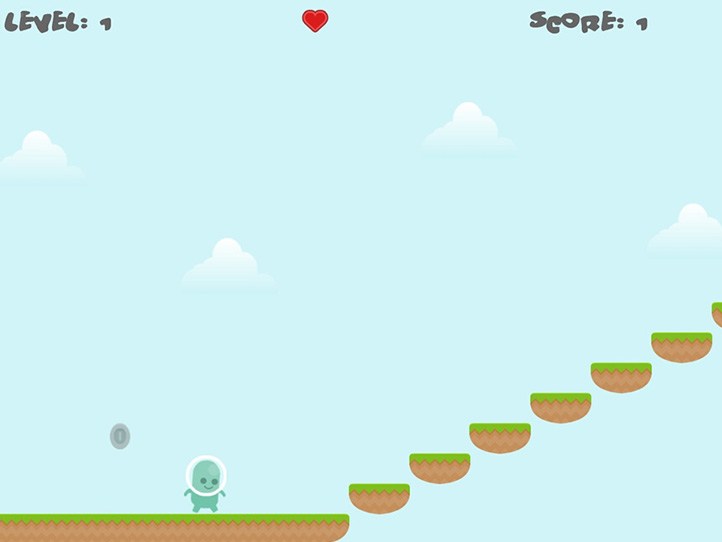A gaming app developed by a team of researchers at the Free University of Brussels (VUB) has proved useful for patients, particularly children, suffering from motor or neuro-muscular problems. The team led by Professor Bart Jansen, won this year’s Development Competition organised by the De Luca Foundation in the US.
Ghostly (free download: zip file) is a 2D platform game inspired by old-style games like Super Mario. Currently only available for Android, it was designed to help the rehabilitation of people suffering from motor and neuro-muscular disorders.
“In the game’s challenging and rewarding game scenarios, a character will be controlled by the muscle activity of the patient, sensed from the Delsys Trigno Avanti Sensors and interpreted by the game software,” the prize citation said. “The success of the character in the game will hence be directly influenced by the actions of the patient. A key concept of the approach is that each game should be flexible to be controlled by a variety of muscles in a variety of ways, thereby decoupling the rehabilitation goals from the specific games and broadens the applicability of the platform to a variety of use cases.”
In layman’s terms, Prof. Jansen explained to Bruzz: “Ghostly allows us to train very specific and various muscles in a diverse but very effective manner. Patients can only play if they use those very specific muscles. Apart from that, such a game is a fun and challenging way to be rehabilitated.”
The game is controlled by electromyography, where the electrical signals produced by muscles and nerves are read by sensors. Before the patient plays, sensors are attached to the muscle to be trained. When the muscle is used correctly, the signal is translated by the game’s software into movement of the character in the game – the ghost of the title, which could also be regarded as the spirit or motivating impulse that governs the body.
The different movements possible in each muscle convert into different actions by the ghost: jumping, running and diving, as well as collecting coins and dealing with enemies.
The game has three environments, each with about thirty levels. “One level only lasts about two minutes,” Prof Jansen said. “The exercise are very tiring, and the patients often have additional cognitive problems, such as a lack of concentration.”
The team is part of the VUB’s department of electronics and informatics (ETRO).
Alan Hope
The Brussels Times

